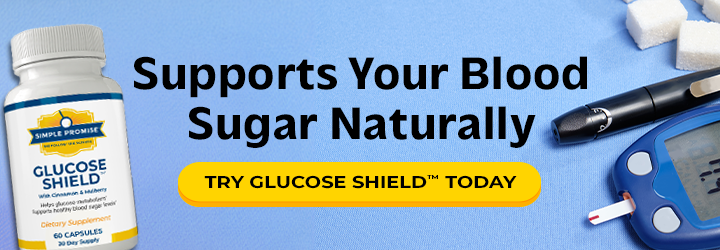Nutrition
Diabetes Explained
May 22, 2019 read
According to the World Health Organization (WHO), Type 2 diabetes is one of the fastest growing diseases in the world. It is estimated to affect ±422 million people in 2018, resulting in ±1,6 million deaths.1
In the US, the CDC estimates that ±30.3 million people (9.4% of the population) have diabetes.2 Even worse is the fact that they estimate that ±84 million Americans are in a ‘pre-diabetes’ phase3. This means that almost 45% of the population could be diabetic in the next few years.
What is interesting about diabetes is that it’s a non-communicable disease, meaning that we can’t catch it from one another, like a cold or flu. Diabetes is a lifestyle-related disease, resulting from the choices (bad) we make on a daily basis. Choices like what we eat, whether we exercise or not and our weight management.
Now here’s the thing, if our bad choices are putting us at risk of getting diabetes, changing those choices can protect us from becoming diabetic. Even more importantly, if we already are diabetic, changing our choices can help us control, and even reverse the course of, the disease!4
How Diabetes Happens
Blood sugar levels in our body are critical for our energy production, brain function, and muscle strength. However, excess blood sugar levels put us at serious risk. Sugars in our diet are converted to glucose and absorbed into the bloodstream. Excess glucose is extremely detrimental to our veins and capillaries, especially in our eyes and extremities.5 To protect us, our pancreas releases the hormone insulin, which helps the cells absorb glucose from the blood.
However, the Standard American Diet (SAD) contains too much starch and sugar, which is speedily converted into glucose and absorbed into the bloodstream, resulting in a spike.
The pancreas reacts by releasing insulin to lower the levels as fast as possible. This happens many times a day, stressing the pancreas. At the same time, our cells become less and less tolerant of the insulin, leading to insulin resistance.
After years and years of stress the pancreas finally wears out, producing less insulin and the insulin resistant cells absorb less of the glucose.
The result is Diabetes!
What we can do?
There are three major things that we can do to help prevent diabetes, control it and even reverse it.
- Maintain a healthy weight
- Eat a healthy diet
- Get adequate physical exercise
Weight management
The first step is to maintain a healthy weight. A simple way of checking what a healthy weight is for you, is to calculate your Body Mass Index (BMI).
Divide your weight in lbs by your height in inches squared. Multiply the answer by 703. This will give you your BMI.
Based on the following you can determine whether you need to lose weight or not.
- Underweight = <18.5
- Normal weight = 18.5-24.9
- Overweight = 25-29.9
- Obesity = BMI of 30 or greater
So, for example, if you are 5ft 10in (70in) tall and you weigh 175lbs, your BMI is 25.1 and you’re bordering on being overweight.
For a handy converter go to: https://www.cdc.gov/healthyweight/assessing/bmi/adult_bmi/english_bmi_calculator/bmi_calculator.html
Diet
Start by cutting down, and eventually eliminating, anything white (white flour, sugar, rice, bread, etc.), junk foods, soft drinks, processed and pre-packaged foods, red meats, fried foods, alcohol, caffeine, trans fats, and salt. Cut back gradually, don’t expect to stop immediately, it probably won’t happen.
Avoid low fat/no fat dairy products (they’re loaded with chemicals and sugar to make them palatable).
Increase your intake of fruits, vegetables, fish (grilled), nuts, pulses, and whole grains. Eat your vegetables raw or lightly steamed.
Adding a teaspoon of cinnamon to tea, toast, casseroles, etc. helps lower blood sugar levels. Cinnamon contains an ingredient called MHCP which mimics insulin, improving glucose metabolism.6
Drink at least 8 glasses of good quality water each day. Not only will it help detox your body but it will help you lose weight.7
Eat five small meals a day rather than two or three large ones. Include a good quality protein in each meal. This helps to stabilize blood sugar levels through the day.
Supplement with Omega 3 and a good multivitamin and mineral. Make sure it contains chromium, which increases your cells’ sensitivity to insulin. 8 Look for supplements that are from organic, whole food sources and that the Omega 3 is sourced from sustainable fish stocks and has been health screened for contaminants like heavy metals, pesticides, and herbicides.
Get enough sleep. Lack of sleep increases the levels of ghrelin, the hormone that stimulates appetite, and decreases leptin levels, the hormone that signals feelings of fullness.
Exercise
Increasing your daily exercise will make a major difference to your blood sugar level and your overall health. This doesn’t mean you have to sign up at your local gym. Just a half hour brisk walk a day can make a huge difference. Park at the far end of the car park, instead of right outside the entrance. Use the stairs instead of the elevator.
The bottom line is – get active. It could end up saving your life - it will certainly prolong it!
Conclusion
These are just a few examples of things we can do to help prevent and control diabetes. There is overwhelming scientific evidence showing that diabetes need not cause the problems it does in the world’s population.
For example, in 2005, results from a three-year study at the George Washington University, Washington D.C., showed that lifestyle changes were more than twice as effective as taking Metformin.9
The important thing to remember is that it’s our choices that make all the difference. Taking responsibility for our health is the starting point to living a healthy, vibrant life.
References
- https://www.who.int/diabetes/en/
- https://www.cdc.gov/diabetes/data/statistics/statistics-report.html
- https://www.cdc.gov/diabetes/basics/prediabetes.html
- https://www.health.harvard.edu/blog/healthy-lifestyle-can-prevent-diabetes-and-even-reverse-it-2018090514698
- https://www.scientificamerican.com/article/diabetes-blood-vessel-damage/
- https://www.ncbi.nlm.nih.gov/pubmed/16634838
- https://www.webmd.com/diet/news/20100823/water-may-be-a-secret-weapon-in-weight-loss#1
- https://www.ncbi.nlm.nih.gov/pubmed/15208835
- https://www.physiology.org/doi/full/10.1152/japplphysiol.01292.2005


















